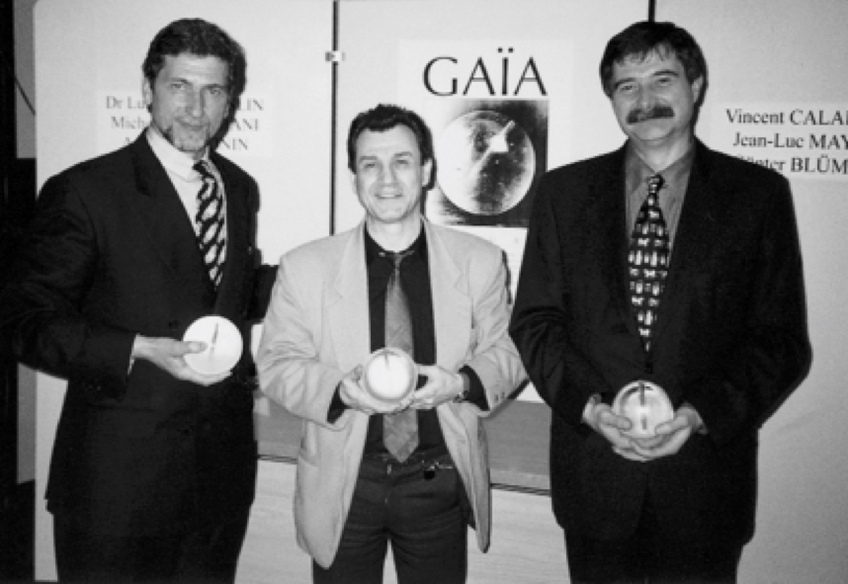

Prix Gaïa 1996 – Jean-Luc Mayaud. History-Research category
He was awarded for his studies on the history of watchmaking and micromechanics in Franche-Comté.
Training
Historian
Selected works
- Besançon horloger, 1793-1914, Besançon, 1994.
- Horlogeries: le temps de l'histoire, In: Actes du Séminaire du Groupe franco-suisse de recherche en histoire de l'horlogerie et des microtechniques (Neuchâtel-Besançon, 1993-1994), Besançon, 1995.
- Les migrants horlogers suisses de Franche-Comté dans le premier XIXe siècle, In: Communication et circulation des informations, des idées et des personnes, Institut d'informatique de la Faculté des sciences, Lausanne, 1995.
Before Gaïa
After graduating from university, Jean-Luc Mayaud started teaching contemporary history at the Faculty of Geography, History, History of Art and Tourism at the Université Lumière-Lyon 2.
A native of Besançon, Jean-Luc Mayaud is a European researcher who led several studies on the watchmaking and microengineering history in Franche-Comté during the 19th and 20th centuries, most of which were published.

He is the author of a long nomenclature of articles about migrant Swiss watchmakers in Franche-Comté. His research also included the study of company documents as a means to gather information about watchmaking history, and the networks and financing sources of the industry in Franche-Comté during the 19th century. Published in 1994 on the occasion of the Besançon watch industry bicentennial, one of his most famous works was the book “Besançon horloger 1793-1914”, which was edited by the Musée du Temps in Besançon.
Mayaud is also one of the founding members of the French-Swiss Group of research in watchmaking and microengineering history comprising the Universities of Neuchâtel and Besançon and the Université Lumière-Lyon 2.
Mayaud's work perfectly dovetailed the scientific considerations of the Institut l'homme et le temps study center of the International Museum of Horology. They were a source of information about the historiography of Swiss and French watchmaking, based on particular cases concerning the study of local production and markets.
After Gaïa
After he was honored with the Prix Gaïa, Mayaud continued his research in watchmaking history but shifted his main focus around the study of rural France, a subject in which he became a specialist. He still teaches contemporary history at the Université Lumière-Lyon 2 and is also the Director of the Institute of Rural Studies/SEREC. In addition to his activities as a researcher, he is the editor in chief of the magazine RURALIA. Among his recent important publications is the book“La petite exploitation rurale triomphante: France XIXème siècle” (1999)and“Gens de la terre, la France rurale, 1880-1940” (2002).


